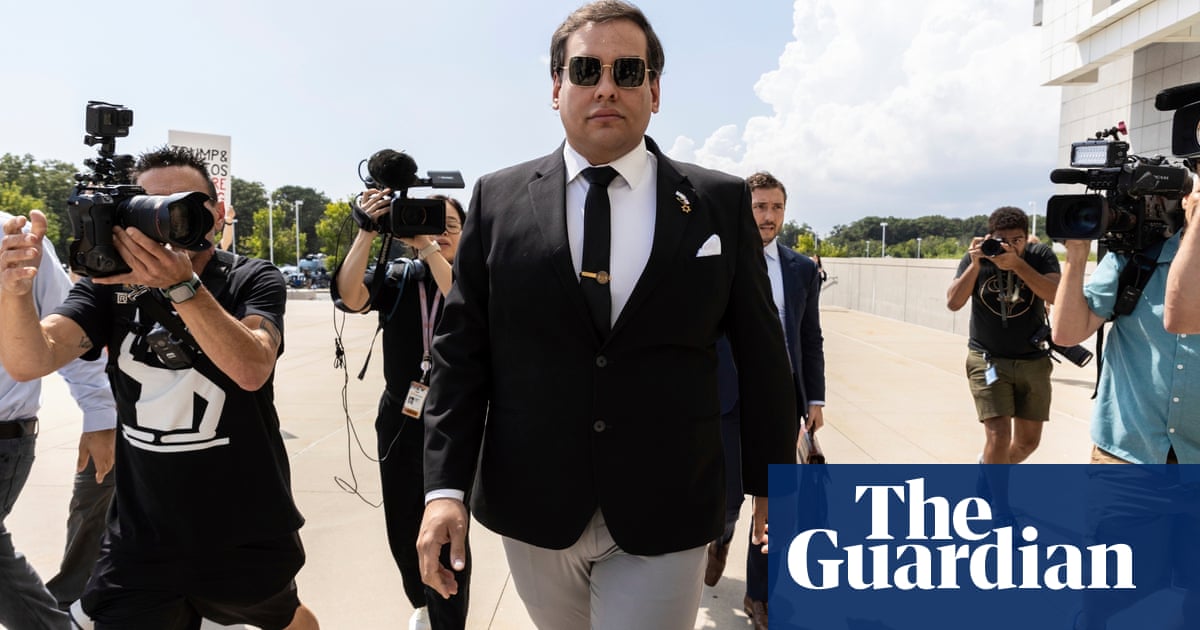Not long after Russia invaded Ukraine in 2022, Danyil packed everything he could in a bag and traveled 15 hours by bus from the Zakarpattia region in western Ukraine to the Czech Republic.
He fled the war at 17, just as the Ukrainian president, Volodymyr Zelenskyy, forbade men between the ages of 18 and 60 from leaving the country. Now aged 20, he watches from the US as the war drags on. In December, Zelenskyy said 43,000 Ukrainian soldiers have been killed and another 370,000 have been wounded in the war.
“I didn’t want to die young,” said Danyil, whose last name the Guardian is withholding due to concerns for his safety if he returns to Ukraine now.
His view of current, US-brokered negotiations are: “There are peace talks now but unless the Russian government is overthrown nothing is going to change. They will continue to bomb.”
After 10 months of working in a Czech automobile plant in the northern region of Liberec, Danyil traveled to the US on 4 January 2023, thanks to a Biden administration program, Uniting for Ukraine, that offered a temporary sanctuary to Ukrainians fleeing the Russian aggression.
But soon after Donald Trump took office again in January, he suspended the Uniting for Ukraine policy, pausing admissions under the program and barring those already in the US from renewing their two-year work permits and deportation protections.
Weeks later, the Trump administration paused all immigration applications for further relief by those who arrived under Uniting for Ukraine and other Biden-era processes that relied on a policy known as parole and Trump has blocked pathways to permanent legal status.
The moves have pushed hundreds of thousands into a state of insecurity after they were welcomed to a safe haven.
As of December 2024, the US had 240,000 Ukrainians with US sponsors under the Uniting for Ukraine program, including Danyil, according to government figures obtained by the Guardian.
Unable to renew their parole status or apply for another temporary legal status, Danyil and the other thousands of immigrants could lose their permits and could end up undocumented and vulnerable to deportation.
Danyil said his parole status ended at the beginning of this year and while he has applied for renewal, he hasn’t received a response from the US Citizenship and Immigration Services.
“I don’t want to stay here illegally but I don’t want to go back to Ukraine. I am afraid, I am young, I want to live,” he said.
Because Ukrainian newcomers were only given permission to live in the US for two-year increments, many applied for other legal shelters, including Temporary Protected Status (TPS).
Earlier in January, Joe Biden’s homeland security secretary, Alejandro Mayorkas, extended Ukraine’s designation for TPS through October 2026. As of September 2024, 63,425 Ukrainians had been granted TPS in the US.
Danyil said he applied for TPS this March, but has not yet received a response.
Trump has directed the Department of Homeland Security to re-evaluate TPS designations of all countries, and his administration has already announced it will phase out protections for hundreds of thousands of migrants from countries under ongoing armed conflicts.
In response, the agency has said that it would revoke the temporary legal status of more than 530,000 Cubans, Haitians, Nicaraguans and Venezuelans welcomed into the US under another Biden-era sponsorship known as CHNV.
More recently, the US district judge Edward Chen in San Francisco blocked the Trump administration from terminating the temporary protection program for 350,000 Venezuelan migrants.
But with continued administration efforts to repeal protection for immigrants in the country, advocates are worried that officials could also discontinue Ukraine’s TPS designation, leaving Ukrainians afraid to go back to a country still at war with no other valid status in the US.
“That’s what has really threatened the safety of over 240,000 Ukrainians,” said Anne Smith, the executive director at Ukraine Immigration Task Force, a nonprofit organization that has helped families from Ukraine find refuge in the US.
“There’s a great danger of being deported, and if not deported, then placed in detention for a long time. Given the majority of the Ukrainians who came here on Uniting for Ukraine under humanitarian parole, there really are no legal avenues available to them unless either the Department of Homeland Security lifts the processing of applications suspension or Congress decides to act,” she added.
On the third anniversary of Russia’s invasion of Ukraine, Senator Dick Durbin, Democrat of Illinois, introduced a bill that would offer Ukrainians who were granted parole, like Danyil, a temporary guest status, regardless of when they arrived in the US.
“When the war started, Republicans across the country opened their hearts and communities to desperately fleeing Ukrainians, even actively petitioning President Biden to protect them from deportation. So far, not a single Republican has cosponsored my bill. But I urge them to join this simple act of American compassion. Standing up to dictators and speaking out for victims of war should never be a partisan issue,” Durbin said in a recent press release.
Illinois is now home to 57,000 Ukrainians brought to the US under Uniting for Ukraine and another 65,000 reside in New Jersey and New York.
The Leonid Foundation, named after a Ukrainian man who was killed in Mariupol during the Russian assault of 2022, has helped more than 3,000 Ukrainian refugees relocate to New Jersey since the war started, according to Anna Move, the organization’s president.
The foundation helped Danyil find a home in central New Jersey. He works mounting television sets in people’s homes and is saving money hopefully to go to college. Meanwhile, he assists wounded Ukrainian soldiers who come to the US to get their prosthetics.
He said: “A lot of people like me dream of staying in the US because there’s an opportunity. I am afraid of going back, I’ve seen those soldiers.”

 German (DE)
German (DE)  English (US)
English (US)  Spanish (ES)
Spanish (ES)  French (FR)
French (FR)  Hindi (IN)
Hindi (IN)  Italian (IT)
Italian (IT)  Russian (RU)
Russian (RU)  15 hours ago
15 hours ago
























Comments